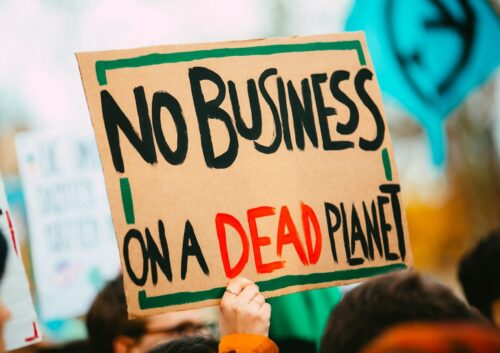In a recent article, titled “How the Existential Terror of Hurricanes Can Fuel Climate Change Denial,” Discover Magazine (DM) posits that the fear induced by hurricanes like Helene and Milton leads individuals to deny climate change. [emphasis, links added]
The authors suggest that existential dread drives people to reject the reality of climate change as a psychological defense mechanism.
This is false.
This climate narrative lacks empirical support and appears to serve more as a scare tactic to motivate action and to explain away why the public increasingly rejects climate alarmist arguments rather than a substantive argument.
The DM article leans heavily on something called “terror management theory,” a psychological theory that explains how people cope with the fear of death, proposing that the fear of mortality compels individuals to deny climate change.
This theory, being relatively new from a book in 2015, remains contentious within the psychological community. The DM authors fail to provide concrete evidence linking this theory to climate change denial, relying instead on weak and speculative connections.
A critical examination of the article reveals a glaring absence of empirical data supporting the claim that severe weather events increase climate change denial.
The authors do not present studies or statistical analyses demonstrating a correlation between experiencing hurricanes and rejecting so-called climate science. Without such evidence, the argument remains unsubstantiated and speculative.
The DM article neglects to consider alternative reasons for skepticism toward climate change narratives. Many individuals question the accuracy of climate models, the reliability of data, and the politicization of climate science.
Attributing skepticism solely to psychological fear oversimplifies a complex issue and dismisses legitimate concerns about the methodologies and motivations underlying climate research.
For example, some recent data released by Our World in Data finds that deaths from all kinds of natural disasters (including hurricanes) have sharply decreased while we experienced mild warming over the last century. See the figure below.
If anything, since deaths due to extreme weather and other phenomenon often erroneously attributed to long-term climate change are declining sharply, it is perfectly reasonable for people to deny a connection.
They are following the science reflected in the mortality data, not the false claims that climate change is threatening more people than ever with death.
If things aren’t getting worse amid modest warming, there is little reason to experience increasing dread.
By suggesting that climate change denial stems from existential terror, DM undermines the credibility of those who question prevailing climate narratives.
This portrayal ignores the fact that many skeptics base their views on scientific analysis and critical evaluation of data.
Reducing their perspectives to mere psychological defense mechanisms is both dismissive and unproductive.
Polls repeatedly show that the general public does not view climate change through the lens of existential terror, but rather as a problem that doesn’t rank high in the list of priorities and threats as other more immediate issues.
That’s not denial, that’s rational ordering, especially in the light of the fact that the supposed causes of harm, worsening trends in droughts, heat waves, hurricanes, and floods, for example, have not materialized.
If things aren’t getting worse amid modest warming, there is little reason to experience increasing dread.
Using speculative psychological theories, lacking empirical support, as a reason people are rejecting climate alarm, as Discover Magazine does, does little to advance constructive discourse on climate science and may serve to alienate those who seek a more nuanced understanding of the issues at hand.
Based on the available data, experiencing “existential terror” in the face of climate change is unjustified, which may be why people reject radical action to restrict freedom and end fossil fuel use.
In essence, the DM article is a classic case of what President Franklin D. Roosevelt said at his first inaugural address, “The only thing we have to fear is fear itself.”
Read more at Climate Realism





















Man, is that ever dumb.
The old Soviet Union would lock up some dissidents (the ones they didn’t murder) in a mental institution. Anyone not accepting the moral righteousness and perfection of Communism must obviously be insane. So said the elite of the Kremlin.
Climate alarmists would love to duplicate this.
If they cant give us the truth instead of Politics then maybe they should just sell this act total Fiction